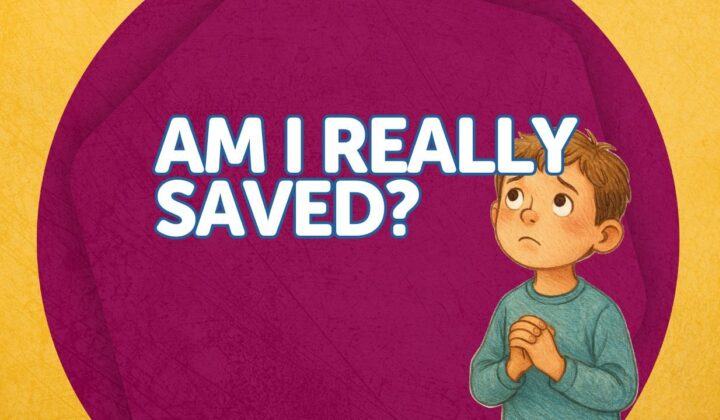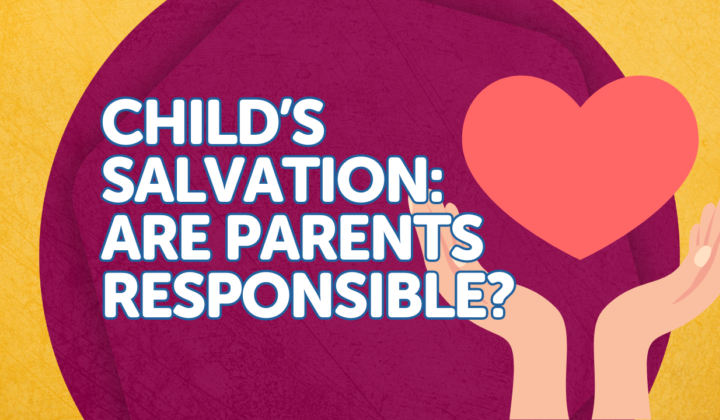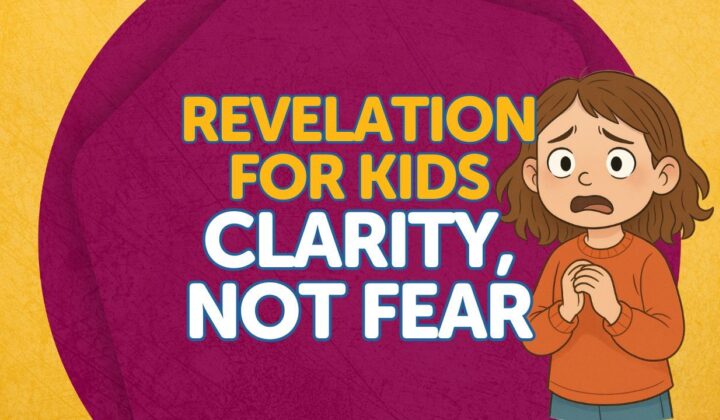Learn more about the journey that led to us equipping kids to carefully evaluate every idea they encounter.
Meet members of our team who have contributed to curriculum development.
Hear from real users of the Foundation Curriculum.
Learn what we believe about God, Jesus, Scripture, and more.
Pro-Life and the Death Penalty: Avoiding the Fallacy of Equivocation
Hello, friends! Today's podcast question asks: What is the biblical worldview position on the death penalty? I'm specifically referring to modern-day uses. "I am pro-life, but sometimes I get asked if I support the death penalty, and I honestly don't know exactly how to respond."
I'm grateful this question came in because I often hear the term "pro-life" thrown around when people begin talking about capital punishment. Today we're going to:
- Look at the term "pro-life"
- Examine the biblical view of capital punishment
- Explore how we can help our children think clearly through this topic
Our children are growing up in a world where these two ideas—being pro-life and thinking through the death penalty—are often confused and conflated. That's our topic on the Foundation Worldview Podcast, where we seek to answer your questions so you can equip the children God has placed in your care to carefully evaluate every idea they encounter and understand the truth of the biblical worldview.
I'm your host, Elizabeth Urbanowicz, and I'm thrilled you've joined me for this episode. If you haven't yet liked, subscribed, rated, or reviewed this content, would you invest the few seconds it takes? It ensures you don't miss future episodes and helps prevent our content from being suppressed by algorithms. So help yourself out and help us out!
Understanding the Term "Pro-Life"
As we consider this topic, we first need to explore what the term "pro-life" actually means. For those who have taken our Careful Thinking curriculum at Foundation Worldview, you know we specifically cover the law of identity—the fact that something is what it is and not something else. When we're using a term, we need to ensure we understand its actual meaning.
Today, many people use the term "pro-life" to mean helping the poor, the weak, the immigrant, and the stranger. As Christians who understand God's Word, we agree it's biblical to help the downtrodden. God has called us to help the poor, the weak, the immigrant, and the stranger. However, that is not what the term "pro-life" classically means.
Classically, the term "pro-life" means someone who is against the intentional murder of pre-born humans, no matter the means used—whether by depriving these humans of elements necessary for healthy growth or physically dismembering them in the womb. Pro-life means being against the murder of innocent children in the womb.
When people use the term "pro-life" to describe other things, they're engaging in the fallacy of equivocation. This fallacy involves taking one word with multiple meanings and using those multiple meanings while making it seem like you're using just one meaning.
For example, someone might say, "I am really good at running half marathons; therefore, if I run for office, I will win." The term "run" has two different usages: moving our legs quickly or setting ourselves up for election. The person has equivocated, making it look like these terms are equal when they're completely different.
Another example would be someone saying, "You told me you are crafty with your knitting, crocheting, and watercolor painting. That's why I can't trust you. Being crafty is being dishonest." Here, the person has equivocated two different meanings of "crafty": someone who enjoys crafts versus someone who purposely deceives others.
When someone uses "pro-life" in ways other than its classical definition, they're engaging in this fallacy of equivocation. If you're interested in training your children to recognize these types of fallacies, I highly recommend our Careful Thinking curriculum at Foundation Worldview.
Pro-Life vs. Capital Punishment
Equating being pro-life with being against capital punishment often engages in this fallacy of equivocation. When someone says, "You told me you are pro-life; how can you be for the death penalty?" they're engaging in this fallacy.
What's really being said under those words is: "If you are against the murder of innocent children in the womb, how can you be for euthanizing someone who raped and strangled five little girls?"
When put in those terms, it becomes clear that being pro-life—being against the murder of innocent children in the womb—is vastly different from being against capital punishment, which concerns the death of someone who has committed heinous crimes against innocent victims.
The Biblical View of the Death Penalty
Even understanding that "pro-life" doesn't mean being against the death penalty for criminals, we still need to address what the biblical view of the death penalty actually is.
In Scripture, we see the death penalty prescribed in multiple places in the Mosaic Law. I won't go through all of them, but let's look at a few examples from Exodus chapter 21:
- Verse 12: "Whoever strikes a man so that he dies shall be put to death."
- Verse 15: "Whoever strikes his father or his mother shall be put to death."
- Verse 16: "Whoever steals a man and sells him, and anyone found in possession of him, shall be put to death." (So kidnapping in this case is cause for the death penalty.)
- Verse 17: "Whoever curses his father or his mother shall be put to death."
This isn't an exhaustive list—just a sampling showing that when God gave the Mosaic Law to the nation of Israel, He did prescribe capital punishment in multiple places.
Those who have taken our Studying the Bible curriculum know that when reading the Mosaic Law, we should ask: "Which covenant does this command represent living under?" These commands were prescribed for people living under the Mosaic covenant. We as New Covenant believers are not under that same covenant, so these aren't rules that need to be implemented in our society.
However, when we read these commands, we should ask ourselves: "What do these commands reveal about who God is and what He values?" All commands in the Mosaic Law reveal aspects of God's character and values.
Looking at these commands, we learn that:
- God is a God of justice who cares about just treatment
- He highly values human life
- He values human freedom (He's against kidnapping)
- He values children respecting, obeying, and honoring their parents
We can take our children through these verses and ask them what this reveals about God and what He values. Then we can ask: "What does this teach us about the death penalty or capital punishment?"
The clear takeaway from these commands is that societies that implement the death penalty for crimes against human life are wise and just societies. God does not want humans to use the death penalty for lesser infractions—for example, the penalty for stealing was to pay back five times what was stolen, not death. We've seen countries implement the death penalty for things like stealing, and those are highly unjust legal systems.
Individual vs. Government Responsibility
We want to make clear to our kids that while it's wise when societies implement the death penalty for crimes against human life, God has given the power of the sword to the government, not to individual humans.
Even if we believe the death penalty is appropriate retribution for murder, kidnapping, or rape, we would be violating God's established order if we implemented such consequences on our own. It's the government's responsibility to bear the sword in our societies.
We can lobby for what we think is wise for our society, but we cannot enact or dole out punishments independently. It always saddens me when someone kills another person "in the name of God" because someone else committed a crime. God has not given individuals this position of bearing the sword—that is the government's job to implement justice and retribution.
Conclusion
I hope two things have become clear:
- The term "pro-life" should be used specifically for being against the murder of innocent children in the womb. When used to describe other things, it commits the fallacy of equivocation.
- God has made clear in His Word that societies are wise and just when they implement the death penalty for crimes against human life—but carrying this out is the responsibility of government, not individuals.
If you found this discussion on the biblical worldview of capital punishment helpful for equipping your children to think biblically about complex moral issues, I invite you to join our email community. By signing up, you'll receive resources specifically designed to help parents and educators teach children to evaluate difficult topics through a biblical lens. You'll also be the first to know about new episodes, free resources, and upcoming courses that address pressing questions just like this one. Don't miss the opportunity to continue building a solid foundation of biblical understanding for the children in your care—subscribe today.
As we leave our time together, my prayer for you is that no matter the situation in which you and the children God has placed in your care find yourselves, you would trust that God is working all things together for your good by conforming you more into His image. I'll see you next time!
Related Posts and insights

Helping Kids Find Assurance of Salvation
Help your child overcome fears about salvation. Learn how to ask the right questions, share key Scriptures, and guide them to true assurance in Christ.

Are Parents Responsible for Their Child's Salvation?
Today's question says, "Am I responsible for my children's salvation? I get very contradicting messages from people. My pastor says it's God's responsibility, but I can't shake the feeling that I will answer God for what my children choose at the end of the day."

Helping Kids Understand Revelation Without Fear
"Wondering how to talk to your kids about the end times and Revelation? Elizabeth Urbanowicz shares biblical guidance for equipping children without fear.



